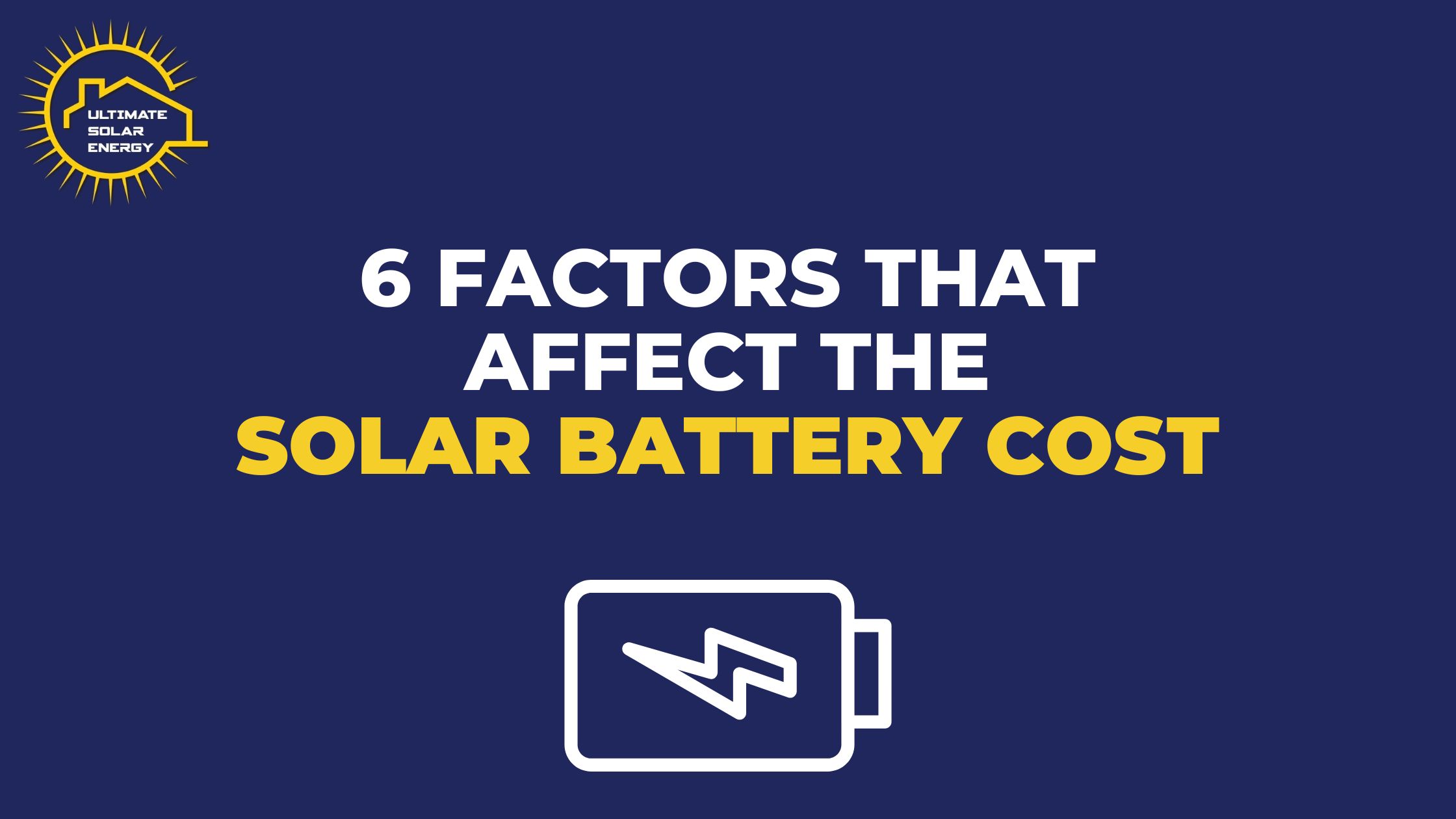6 Factors that Affect the Solar Battery Cost
6 Factors that Affect the Solar Battery Cost
Solar batteries are essential for any solar power system, as these power backups guarantee maximum leverage of solar energy by conserving excess powerfor later use. Solar batteries are reliable and pocket-friendly power backup options for homeowners who need a consistent supply of stored solar power during night hours, cloudy weather, or frequent power outages.
Since numerous types of solar power backup options are available in the market, and if selected rightly, solar batteries offer several benefits in the longer run. Thus, before spending money,it is worth contemplating the following six price factors that affect solar battery costs.
1. Battery Capacity
Battery capacity is one of the crucial factors that impact the cost of any power backup. Simply put, battery capacity is its ability to store the amount of power. Generally, solar batteries for homes have a storage capacity within the range of 10kWh and 20kWh.
Solar battery backup time varies and depends on several factors, such as solar battery storage capacity, solar panel size, amount of converted solar energy, etc. Therefore, opt for high-capacity solar batteries for longer backup time.
2. DC V/S AC
DC (Direct Current) batteries have a simple mechanism that allows current to flow in one direction. Generally, DC backups are less complex, highly efficient, and economical. DC batteries are good options for those who prefer solar PV installation with power backup.
AC (Alternative Current) batteries have a more complex working mechanism and built-in-inverters. These solar backups are easy to install and are highly compatible with already installed solar PVs. So, AC battery coupling is a perfect option to connect with pre-installed solar systems.
3. Backup Gateway
The backup gateway is an important device that protects the home electric grid from fluctuation shocks caused by unexpected power outages. The device is more like a power transfer switch for power backups. Therefore, pick solar batteries with a backup gateway to get smooth power backup without back-feeding power to the electric grid.
4. Skilled Solar Technicians
Generally, solar batteries are high-cost devices with a lot of technicalities. Therefore, when installing solar energy backups for the first time, get experts’ assistance. USE has certified solar expert technicians who ensure proper battery installation and connection with solar PVs.
5. Ancillary Accessories
Solar battery prices include supporting equipment costs, such as solar battery mounts, wires, disconnect switches, and conduits. Thus, add these price factors to solar power backup outlays for a clear budget picture.
6. Solar Battery Incentives
Globally, the public sector is investing in hybrid energy models. In Australia,the household battery rebate is $3,500 (excluding GST) or 50% of the battery price (excluding GST). So, now is the best time to invest in sturdy solar power backups as it will be economical and an eco-friendly step.
Other than the above six price factors, consider the following critical points before investing in solar power batteries.
- Select solar power batteries fit for your solar panel system voltages. Generally, solar batteries of 12V – 24V are suitable for residential solar panels.
- There are diverse solar power backup technology options available in the market. For instance, NiMH (nickel metal hydride) and NiCd (nickel-cadmium) batteries are affordable but have low power storage capacity. Li-ion (lithium-ion) batteries are expensive but have more energy storage capacity. So, consider your usage and power requirements before selecting any solar particular power backup.
- Most solar batteries have built-in integrated charge controllers that protect solar panels from overcharging. Thus, always go for solar backups with a charge controller system as a precautionary measure.
- Consider the peak power output of solar batteries. Usually, it is measured in kWp (kilowatt peak). The kWp rating shows the maximum power output of the battery. And it is a rule of thumb that a high rating indicates better solar battery performance.
- Always opt for batteries with high round-trip efficiency. Such batteries are economical with long life. Round trip efficiency is the output percentage of the stored energy. Such as, if a solar battery store 100kWh and provide an output of 90 kWh, its round-trip efficiency will be 90%.
- Pick solar batteries for homes with high ambient temperature ratings. These ratings indicate the optimum temperatures at which solar batteries perform well. It is a significant consideration factor for users who live in hot regions.
Final Thoughts
Often new solar energy consumers overlook solar power bank size and opt for the one-size-fits-all method, which eventually leads to poor performance and a waste of money and time. Undersized solar batteries don’t have sufficient capacity to cater to household energy demands. While over-sized power banks often damage solar PV systems owing to not getting enough energy for charging. Therefore, before making a solar energy battery investment decision, contemplate all the significant factors, critical points, and your power consumption requirements to avoid any later inconvenience.
At ultimate solar energy we create customized solutions that fit your needs. Get a free quote now.

